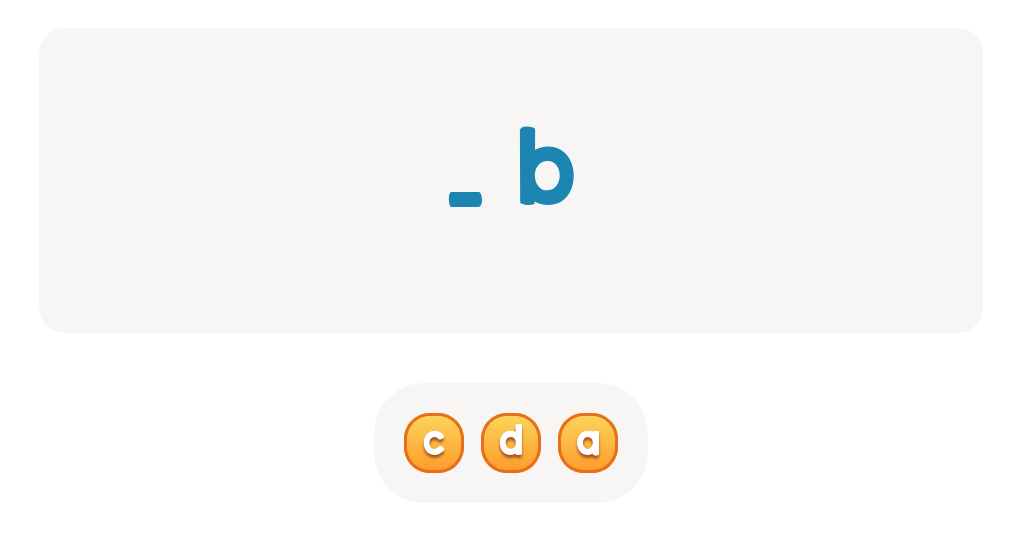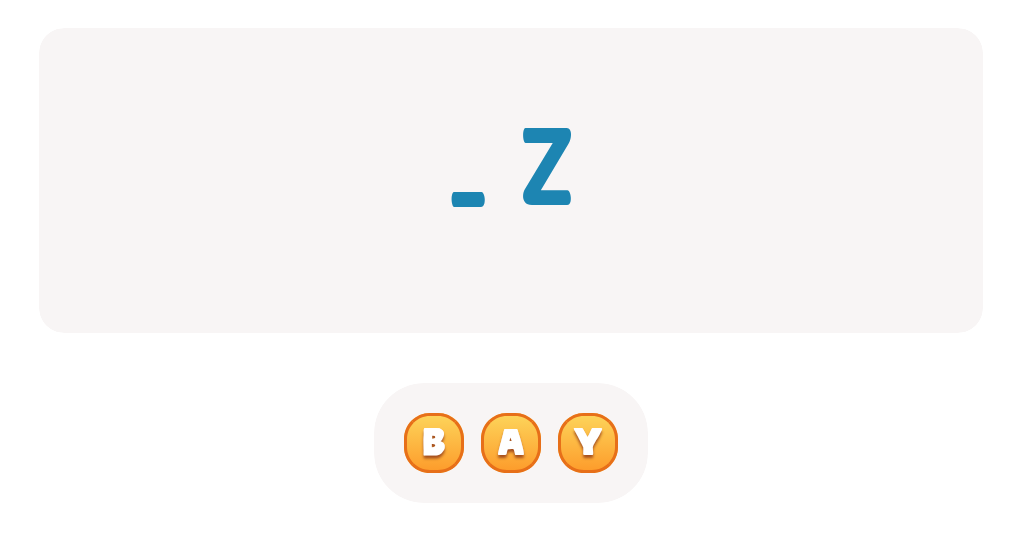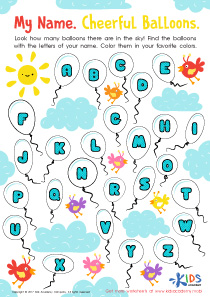Alphabet tracing Normal ABC Order Worksheets for Ages 4-7
4 filtered results
-
From - To
Discover our Alphabet Tracing Normal ABC Order Worksheets perfect for children ages 4-7! These engaging activities help young learners master the alphabet through easy-to-follow tracing exercises. Each worksheet emphasizes letter recognition, fine motor skills, and correct penmanship. Our meticulously crafted materials inspire confidence and make learning enjoyable. Ideal for introducing or reinforcing alphabet knowledge, these worksheets are an excellent resource for both classroom and at-home practice. Help your child embark on an exciting journey of literacy with our practical, pedagogically crafted tracing worksheets from Kids Academy. Start exploring our collection today for a brighter learning future!


Letter P Tracing Page
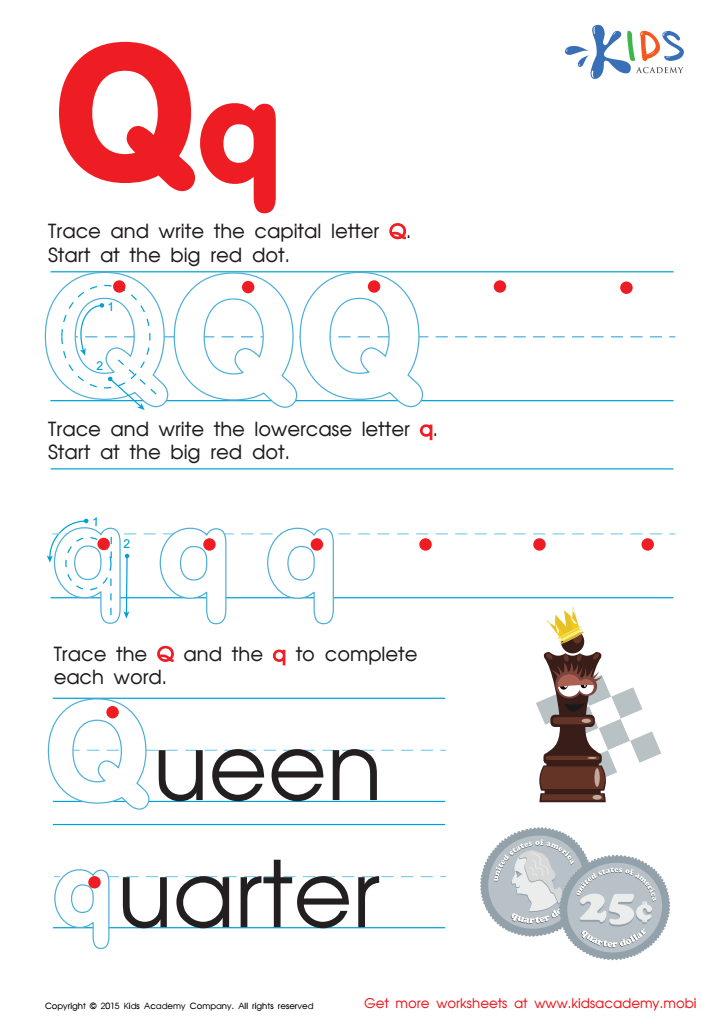

Letter Q Tracing Page


Letter H Tracing Page
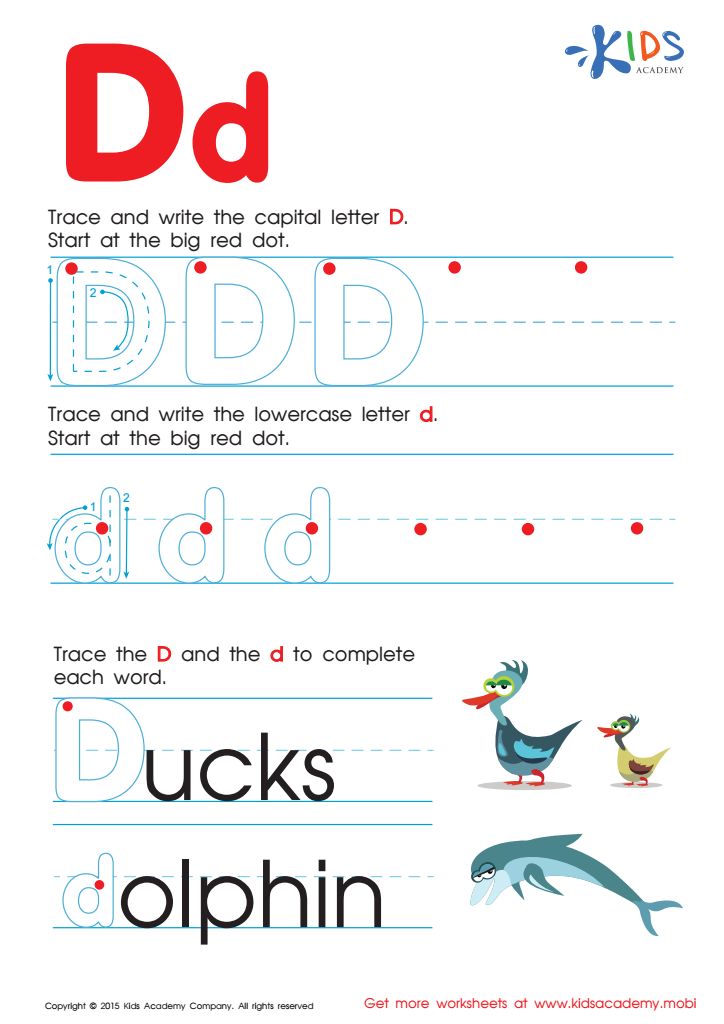

Letter D Tracing Page
Alphabet tracing in the normal ABC order is crucial for young children aged 4-7, as it builds a foundational skill necessary for reading and writing. At this developmental stage, children are fine-tuning their motor skills and learning to recognize the shapes and sequences of letters, which are critical components of literacy. Tracing helps solidify these skills by providing a multi-sensory learning experience that combines visual, kinesthetic, and tactile activities. This method encourages memorization through repetition and muscle memory, making it easier for children to recall and write letters independently over time.
Moreover, understanding the alphabetical order aids cognitive development by fostering skills like sequencing, which is essential not only in literacy but also in subjects like math and science. It gives children a structured way to categorize information, promotes organizational skills, and prepares them for more complex learning tasks. For parents and teachers, facilitating alphabet tracing helps identify any early signs of learning difficulties, allowing for timely interventions that can prevent future academic struggles.
In summary, caring about alphabet tracing in the normal ABC order equips children with the basic tools for literacy, enhances cognitive development, and paves the way for overall academic success, making it a fundamental aspect of early childhood education.
 Assign to My Students
Assign to My Students



